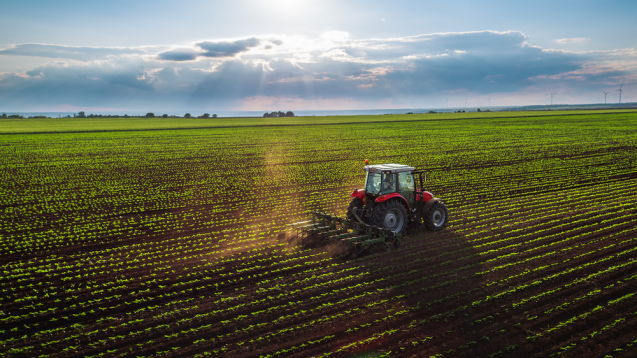EU Auditors Urge Increased Commitment to Achieve Organic Farming Targets

The European Court of Auditors has recently issued a significant warning regarding the European Union’s ambitious target of dedicating 25% of agricultural land to organic farming by 2030.
In a report released on Organic Farming Day, auditors expressed serious concerns about the adequacy of current support mechanisms, suggesting that the goal now appears increasingly unattainable. This skepticism is echoed by the European Environment Agency, which has similarly indicated doubts about the feasibility of meeting this target.
The EU's action plan for organic production, adopted in 2021, highlights the many advantages of organic farming as an integral part of the broader "Farm to Fork" strategy. However, the analysis provided by the Court of Auditors reveals that although the Common Agricultural Policy (CAP) has allocated approximately €12 billion to support organic farms from 2014 to 2022, this funding has not sufficiently nurtured the organic sector. Furthermore, an additional €15 billion is earmarked for support through 2027, but current measures are failing to drive the growth in organic farming practices necessary to meet the 25% target.
Keit Pentus-Rosimannus, the auditor responsible for the report, emphasized the urgent need to bolster both supply and demand in order to ensure that organic farming does not remain a niche market dependent on EU funding. He advocated for a comprehensive approach that includes not only increasing the area under organic cultivation but also enhancing market development and consumer engagement to create a vibrant organic sector.
In response to the auditors' findings, a spokesperson for the European Commission asserted that while the report may seem outdated, it does not fully reflect recent developments in the CAP or the positive long-term trends in organic farming. The Commission encourages member states to intensify their support for organic production, underscoring the necessity of a strategic vision that extends beyond 2030.
At Euro Coop, we recognize the critical importance of a robust organic sector in promoting sustainable agriculture and ensuring food security across Europe. We believe that strengthening support for organic farming is essential not only for achieving ambitious environmental targets but also for fostering innovation and resilience within the agricultural community. We urge all stakeholders, including policymakers and consumers, to unite in support of organic initiatives that promote sustainable practices, enhance market opportunities, and secure a healthy future for our food systems.
As the EU progresses toward its goals, it is crucial to establish clear, quantifiable objectives and robust mechanisms to monitor progress, ensuring that farmers receive the guidance and support they need to thrive. With collective effort and renewed commitment, the EU can cultivate a vibrant organic market that benefits farmers, consumers, and the environment alike.
Latest News

EU Commission Presents New Five-Year Consumer Policy Roadmap
The EU Commission has unveiled its new five-year roadmap for consumer policy, outlining...

Euro Coop Co-Signs Joint Position Paper on Omnibus I
Euro Coop, together with CNA , Legacoop and ECCO , has released a joint position paper in...

Euro Coop is seeking an Erasmus+ Policy Intern
Euro Coop – The European Community of Consumer Co-operatives is seeking a Policy Intern...
Latest Stories

UN Recognises Cooperatives with Decadal International Year
Euro Coop warmly welcomes the United Nations General Assembly’s historic resolution to...

Skupina COOP Wins at the European Commerce Awards 2025
Euro Coop warmly congratulates Skupina COOP , our member from the Czech Republic, for winning...

FNCC Showcases Consumer Cooperation at GSEF 2025 in Bordeaux
Euro Coop member FNCC proudly participated in the Global Social Economy Forum (GSEF) 2025 ,...

